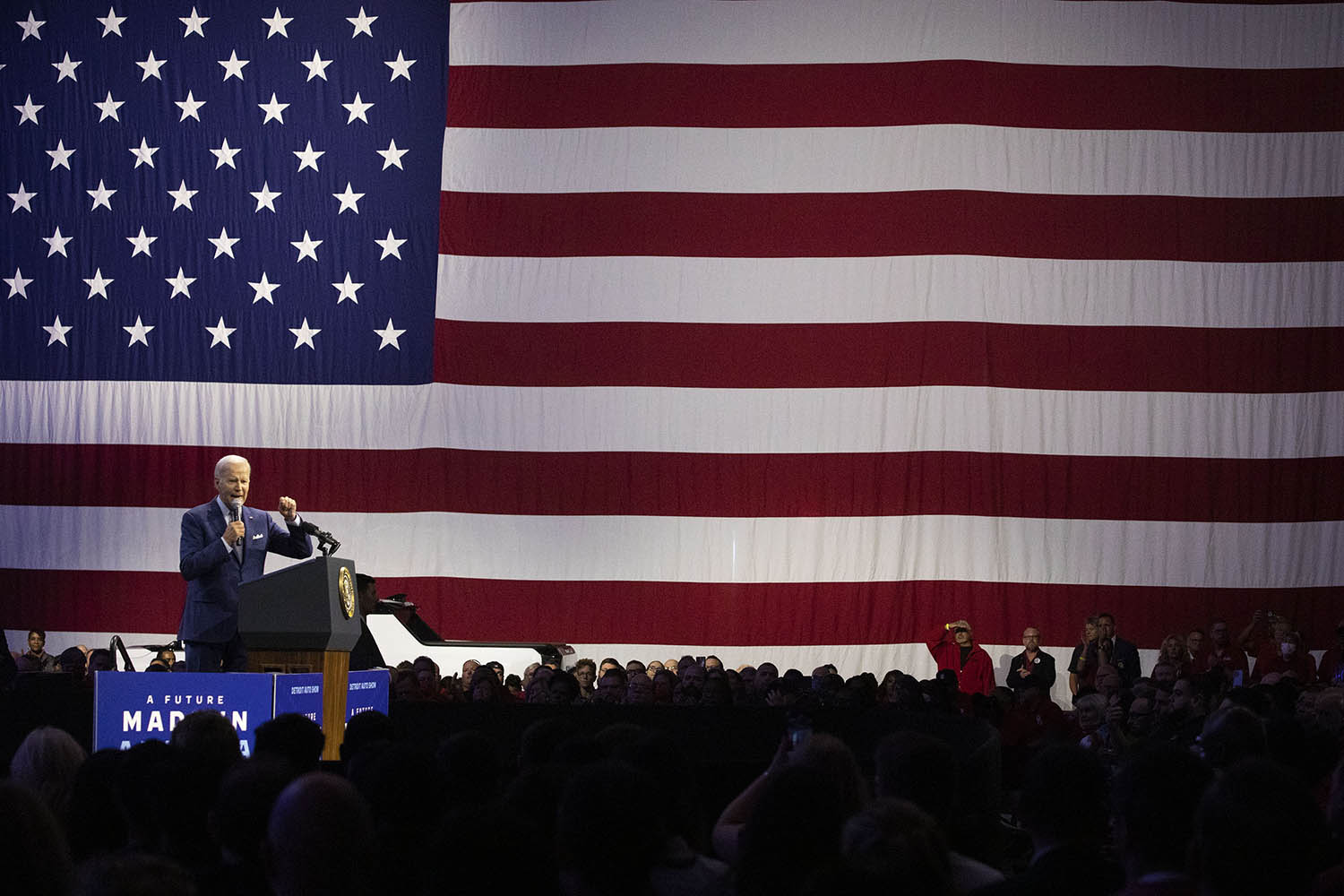
The president’s economic agenda is bringing jobs – but not much love
Joe Biden isn’t shy about lending his name to his economic strategy. In fact his re-election campaign is based on it. This week he delivered the latest in a series of set-piece speeches on “Bidenomics”, which makes bold use of tax dollars for
- investment and subsidies for clean energy, semiconductors and infrastructure;
- supply chain onshoring and manufacturing revival;
- reigning in corporate power and breaking up monopolies; and
- empowering trade unions.
So what? Bidenomics appears to be working. It just isn’t popular.
Most indicators are flashing green on the US economy and a much-feared recession hasn’t materialised, but 64 per cent of Americans still have little or no confidence in Biden on the economy. More worryingly for the White House, only 27 per cent of his own party strongly approve of his economic performance.
In a Labor Day speech to union workers this week Biden talked up his record on
- jobs, claiming his administration has created nearly 13.5 million while unemployment has been below 4 per cent for the longest stretch in 50 years;
- wages, which are are on the up; and
- inflation, near its lowest point in more than two years.
But Americans still aren’t buying it. Polls consistently put Biden and Trump neck and neck in a hypothetical rematch for 2024, and a new CNN poll shows that nearly half of registered voters say any Republican candidate would be preferable to Biden.
That’s because:
- Many of the job gains under Biden have been in industries impacted by the pandemic – a lot of that job “creation” is actually “restoration”. Low unemployment rates are also buoyed by low resignation rates, which suggests a lack of confidence in the job market.
- The increase in wages since 2021 have been on top of pre-Covid wages which were already stagnant. And throughout Biden’s presidency those wages have been eroded by record inflation, high debt and high rent, leaving only a third of American workers satisfied with their pay. This summer has seen one major change: wages are now rising faster than inflation (although a corresponding uptick in Biden’s polling hasn’t materialised yet).
Here for a long time, not a good time
White House allies say anyone expecting a quick political turnaround is missing the point. Bidenomics is “more of a long-run strategy to advance a variety of goals including not just economic growth but also climate change and national security,” says Jason Furman, ex- chair of Obama’s Council of Economic Advisers.
Which is all very well if you have time on your side, but it’s not clear Biden does.
Trump rode to the White House in 2016 on a wave of discontent among mainly midwestern voters, promising to bring back manufacturing jobs taken by globalisation. Traditional Democrats in states like Michigan, Pennsylvania and Wisconsin who lent Trump their vote in 2016 before withdrawing it in 2020 are those Biden needs to retain next year.
Bidenomics is his way of parking his tanks on Maga lawns. 800,000 manufacturing jobs have been created since January 2021, and of the ten states with the largest increase, eight voted for Trump in 2020. According to the FT, 80 per cent of the IRA’s clean energy projects are in Republican congressional districts.
Beyond the battle for blue-collar workers, low inflation coupled with higher wages and employment will be Biden’s best chance of a ticket back to the Oval Office. And the president has been lucky so far in being spared a recession most of his predecessors weren’t.
“If inflation continues to come under control while unemployment stays low I suspect voters will credit President Biden more than he deserves,” Furman says. “Conversely, if inflation is persistent or the economy is in recession then they would blame him more than he deserves.”
Research shows voters’ views on the economy are baked in by June of the election year. That gives Biden nine months.









